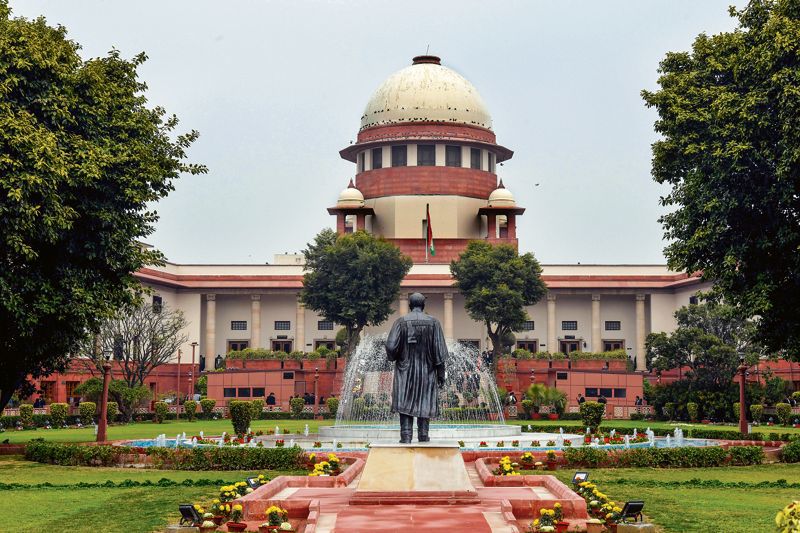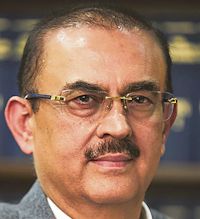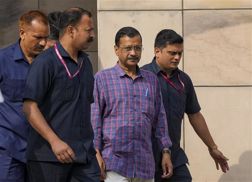
Imperative: Courts should have the latitude to grant bail generously, unless the accused poses a threat to society or to the ongoing investigation. ANI
Vikas Singh
Senior Advocate, Supreme Court
RECENT developments in bail-related court cases are reminiscent of the context in which the provision for anticipatory bail was first deemed necessary. The Law Commission of India, in its 41st report (September 24, 1969), examined the steadily increasing tendency of politicians to try to implicate their rivals in false cases. The objective of such actions was to disgrace and shame them in the eyes of the public. The Commission asserted that even in other circumstances, it was hardly justified to arrest and detain in custody a person who was not likely to abscond or misuse his liberty. In Gurbaksh Singh Sibbia vs State of Punjab (1980), the Supreme Court recognised that there may be situations wherein the police are not free agents and may be used to harass or humiliate opponents. It stated: “That can even take the form of the parading of a respectable person in handcuffs, apparently on way to a court of justice. The foul deed is done when an adversary is exposed to social ridicule and obloquy, no matter when and whether a conviction is secured or is at all possible.”
These words have proved to be prescient in the run-up to the General Election. Leaders of the Aam Aadmi Party (AAP) are being placed under arrest one by one by the Enforcement Directorate (ED), which is controlled by the Central Government. The arrests have taken place under the Prevention of Money Laundering Act, 2002, which has more stringent conditions for the grant of bail than for ordinary offences. Section 45 of the Act provides that a court may grant bail to an accused if it is satisfied that firstly, there are reasonable grounds for believing that the accused is “not guilty of such offence” and secondly, that the accused is “not likely to commit any offence while on bail”. It is apparent that these ‘twin tests’ can only be satisfied on an examination of the case on its merits. However, at the bail hearing of AAP leader Sanjay Singh on April 2, the apex court indicated to the ED that if bail was opposed, it would have to pass an order that may adversely affect the case of the prosecution at the trial. The prosecution decided not to oppose the bail plea, and the court passed an order stating that the ‘concession’ of granting bail to Singh would not be treated as a precedent, and that no comments were being made on the merits of the case.
The highest constitutional court of the land must ensure that justice is done in every respect. If there seems to be an absence of sufficient evidence, prima facie, proving the guilt of the accused, the same must be recorded. Non-recording of reasons also deprives the co-accused, who stand on a similar footing, of using the grant of bail as a precedent to get respite.
The AAP arrests have been made in the Delhi excise policy case. The policy was implemented in November 2021. The Lieutenant-Governor of Delhi recommended a CBI probe into the case in July 2022. The issue has been in the public domain for almost two years. Certainly, no question of tampering with the evidence or influencing witnesses arises so late in the day.
Delhi Chief Minister Arvind Kejriwal has been arrested in this case. The ostensible reason given is that he did not cooperate with the investigating agency in the inquiry. However, it is a fundamental right under Article 20(3) of the Constitution that no one can be forced to testify against oneself. Hence, the justification for the necessity of his arrest does not hold water. This series of events should lead to introspection on the implementation of bail provisions in special Acts where “jail is the rule and bail is the exception”. The police hold wide discretion in their power of arrest, which increases the scope of this power being used arbitrarily at the behest of the ruling party. This underscores the urgent need for reforms to make the police force more accountable.
Even in cases not involving political rivalry, bail remains a distant prospect for many accused persons. This is in spite of the legal presumption of innocence until one is proven guilty and convicted. For an undertrial to be deprived of his liberty for years on end, merely on the suspicion of having committed an offence, is a harsher punishment than any envisioned in law. In 2022, in a landmark judgment in Satender Kumar Antil vs CBI, the Supreme Court voiced deep concern over the massive population of undertrial prisoners languishing in India’s jails. The court, in no uncertain terms, criticised the conduct of investigation agencies which automatically oppose bail, terming it a ‘vestige of colonial India’. The danger of democratic India being seen as a repressive police state was highlighted. The court went on to lay down guidelines for the grant of bail in four categories of offences, and asked the government to consider introducing a separate Act to streamline the grant of bail.
The Satender Kumar Antil vs CBI judgment is part of a long line of judgments that firmly base the grant of bail on the premise of the right to life and liberty. However, this often does not translate to implementation on the ground. The prevailing judicial principles must be strictly followed, and courts should have the latitude to grant bail generously, unless the accused poses a threat to society or to the ongoing investigation. However, in the case of convicts, bail should be allowed sparingly. The practice of using statements made by other co-accused or suspects in police custody to make a case for denial of bail must also cease. A statement under Section 161 of the Code of Criminal Procedure, 1973, is inadmissible as evidence, apart from the limited purposes of cross-examination or when such statements lead to the discovery of other incriminating evidence. It follows that such statements can certainly not be used to deny bail to an accused person, unless corroborated by legally admissible evidence.
Join Whatsapp Channel of The Tribune for latest updates.



























